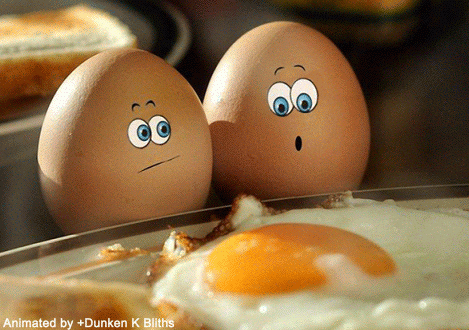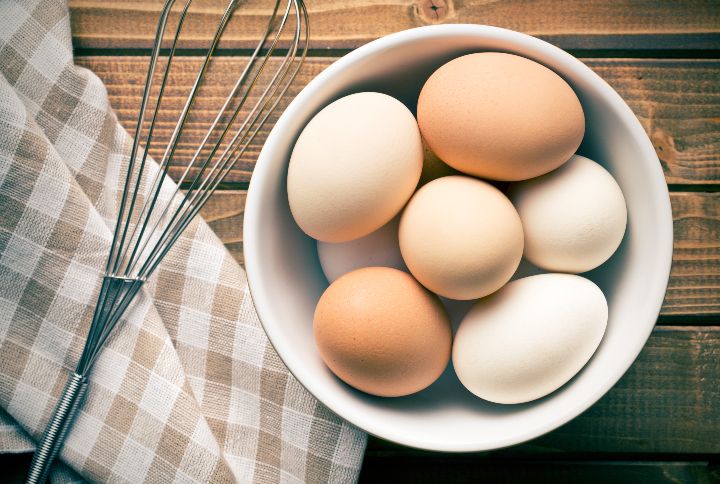
What’s an egg-cellent breakfast/meal/snack food item? Yep, you’re right—eggs! They taste good, can be made in so many different ways, be paired with different foods as well as have such high nutritional value. But do you think you know everything about eggs? And do you think everything you know about eggs is true? Well, it has come to my attention through some research that we’ve been believing a lot of myths about eggs. And TBH, I thought most of these myths to be true until now. Shocking, right? Well, read on to be shocked some more.
Myth #1: Blood Spots In Eggs Means Fertilisation In It
This is not a very common sight but does occur sometimes. If we see a blood spot in our egg yolk then we think it is a sign of fertilisation and maybe the egg yolk would have hatched into a chicken someday. But that’s not true at all.
These blood spots are nothing but ruptured blood vessels that might have occurred during the formation of the egg inside the hen. Or, it could also be a result of the hen’s genetics, a lot of times even the deficiency of vitamin A. Such eggs are totally safe to eat, just be sure that you cook them properly.
Myth #2: Brown Eggs > White Eggs For Nutrition
Applying the same logic as brown bread and white bread won’t actually work for eggs. TBH, the colour of an egg does not define its taste or nutritional value in any way. So, pick whichever colour of egg you prefer because it’s all the same.
Myth #3: Raw Eggs > Cooked Eggs For Protein
https://www.instagram.com/p/BvbX9FkgTaI/
You might have come across a lot of cartoons and fictional characters downing a glass full of raw eggs. But that does more harm than good, TBH. Firstly, there’s a high risk of getting salmonella (an infection caused by having raw eggs which can make a person extremely ill) by consuming raw eggs. And secondly, raw eggs in no way offer a higher amount of protein than cooked eggs. In fact, the body takes in almost two times protein from cooked eggs than from the raw ones.
Myth #4: Small Eggs Come From Small Chickens And Large Eggs Come From Large Chickens
As funny as it sounds, it can be true for some cases but not always. The size of an egg actually depends on the age of the chicken and its diet and not the size of the chicken. So usually, older chickens lay larger eggs.
Other factors that help in determining the size of an egg include the weight of the animal, it’s breed and also the environment around it. Which is why a lot of times hens tend to produce smaller eggs if they feel too crowded.
How do you like your eggs? Let us know in the comments below!
Don’t forget to follow us at @missmalinilifestyle to never miss a beat!

